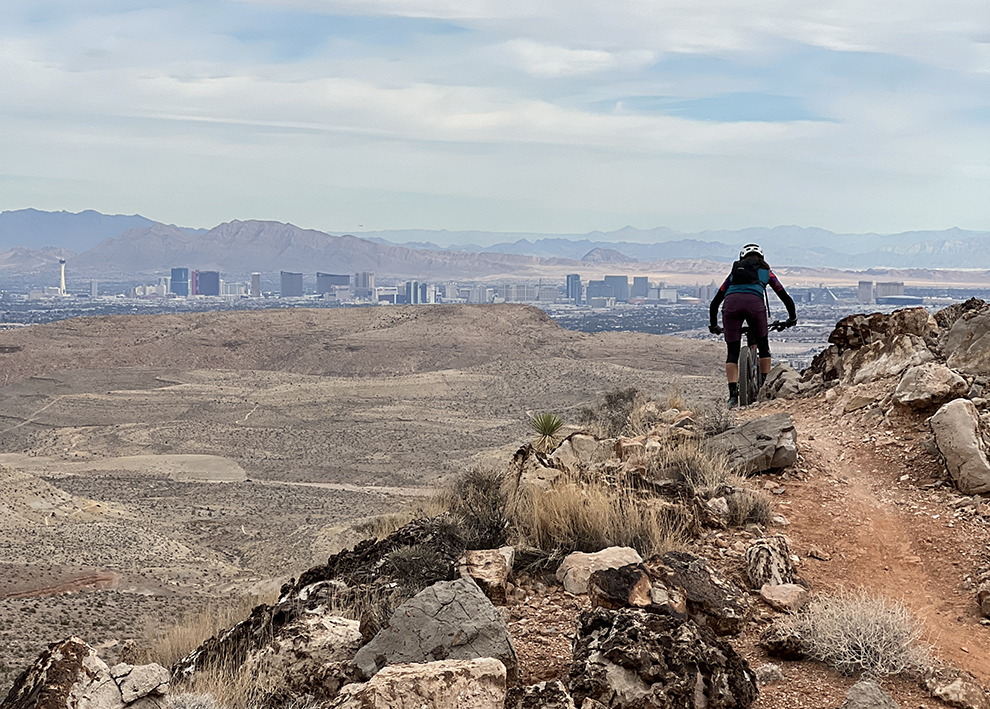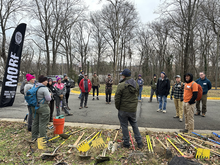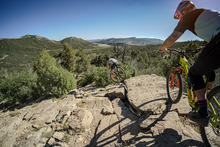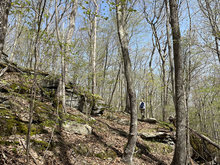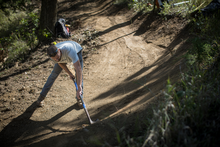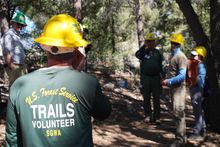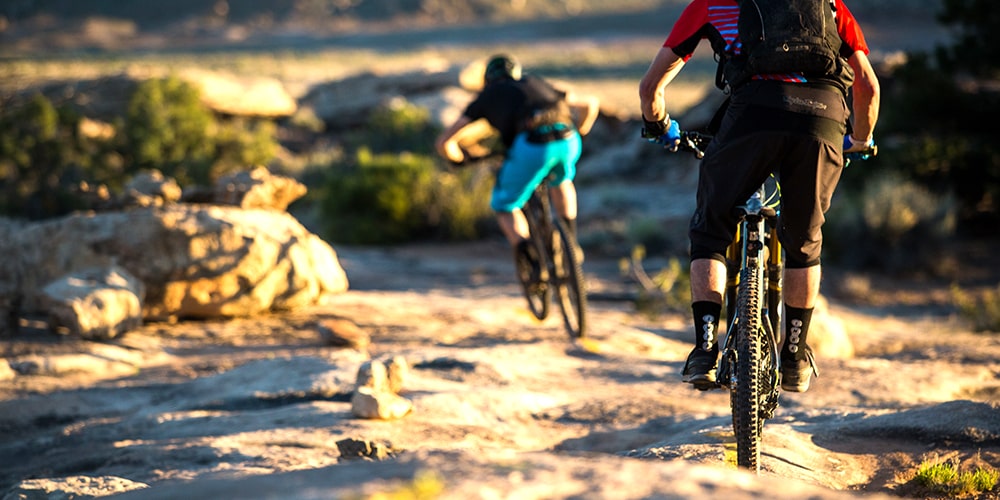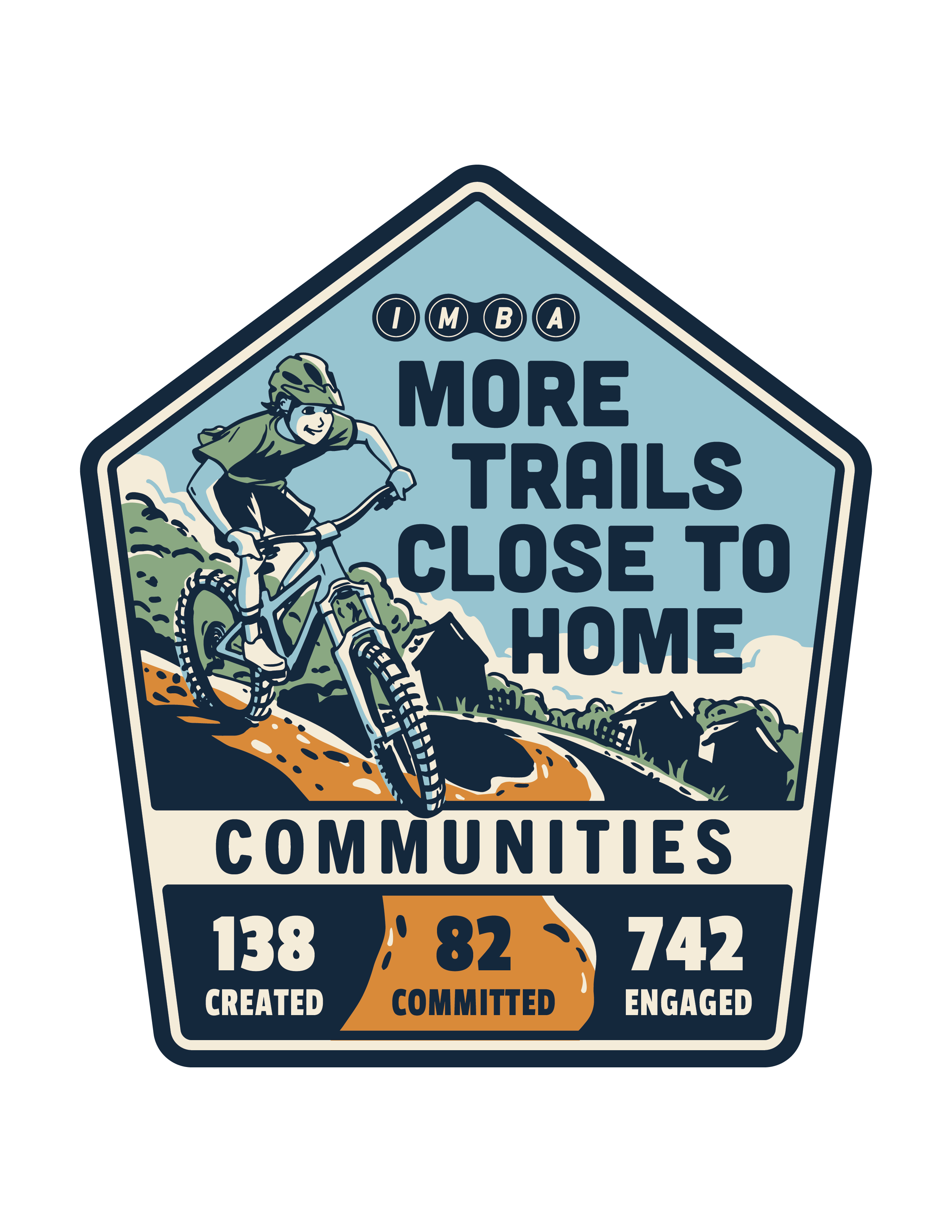Why 20 Volunteers Traded a Snow Day for a School Day
As Vice-President of the Southern Nevada Mountain Biking Association, I was pivotal in drafting an RTP grant that ultimately was awarded funding. RTP grants provide funding for recreational trails and trails related projects. Our grant was titled “Supporting Land Managers With Trail Maintenance” and funded four key objectives:
1. IMBA’s Trail Care School
2. Rehabilitation and maintenance of 4-miles of local trails
3. Five Trail Boss trail maintenance toolkits
4. Free educational programs with a focus on riding safety and proper trail etiquette
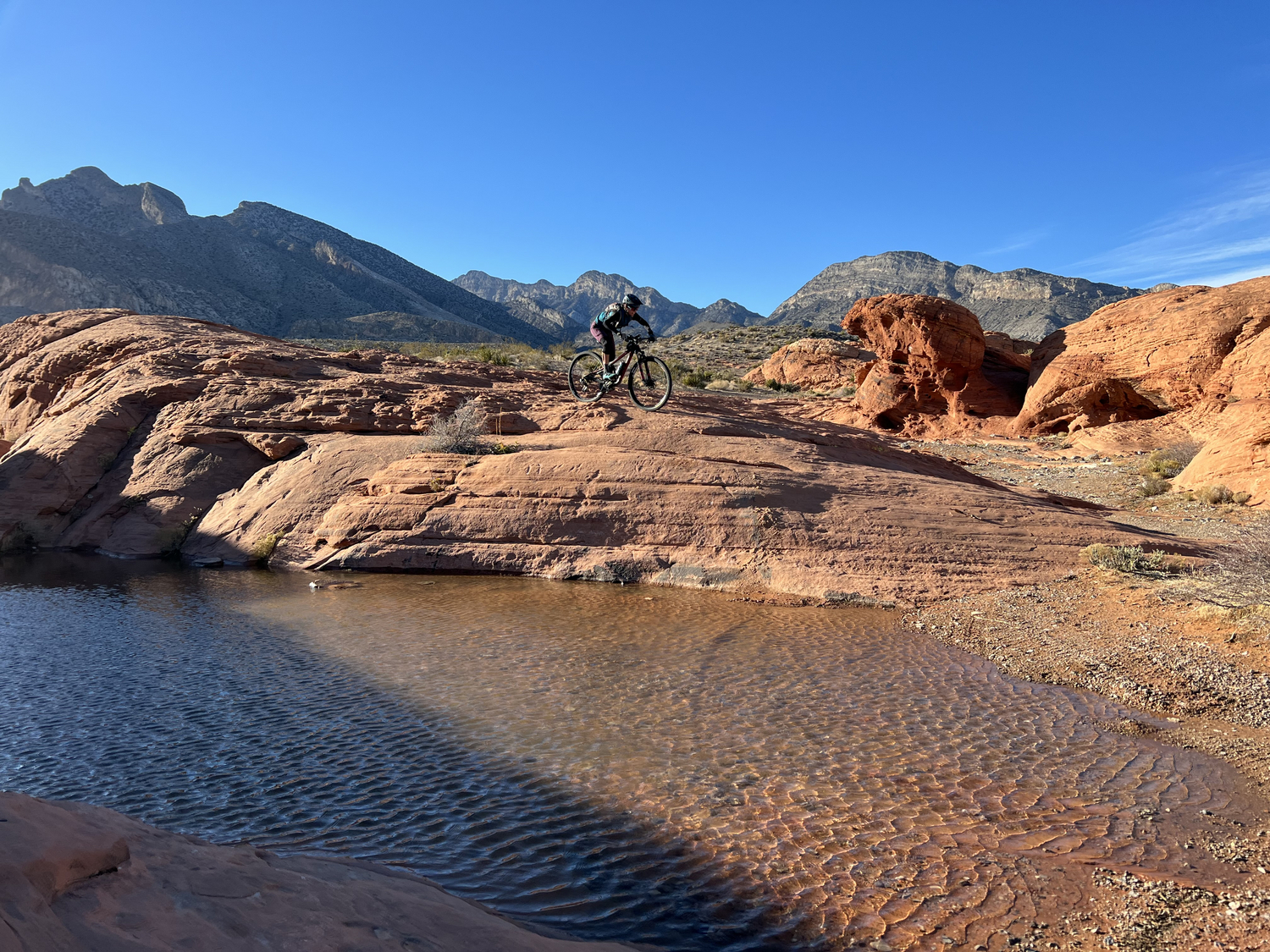
Understanding why this project is vital to Las Vegas requires understanding our current trail infrastructure. Over 80% of the land in Nevada is public land managed by agencies such as the Bureau of Land Management (BLM) and the United States Forest Service (USFS). Las Vegas, with a population pushing 3 million, is surrounded by public land, prime terrain to support sustainable recreation. However, over the last twenty years, we can’t identify any new trails sanctioned for mountain biking in the area. For this reason, for better or worse, local Las Vegas residents have taken it upon themselves to build a vast network of trails that, in my opinion, are AMAZING! Unfortunately, none of these trails are “officially” sanctioned, so essentially they are illegal.
SNMBA’s long-term goal, and my personal mission, is to work toward sanctioning these trails surrounding Las Vegas. Because of the terrain and climate, Las Vegas has enormous potential to be a mountain bike mecca. High-quality mountain bike infrastructure has a proven track record of benefitting local communities. Nearby Moab and St. George, UT, are key examples. Sleepy Bentonville, Arkansas, previously known only as the home of Walmart, is seeing a resurgence after a hefty investment in mountain biking and proclaiming itself the Mountain Bike Capital of the World.
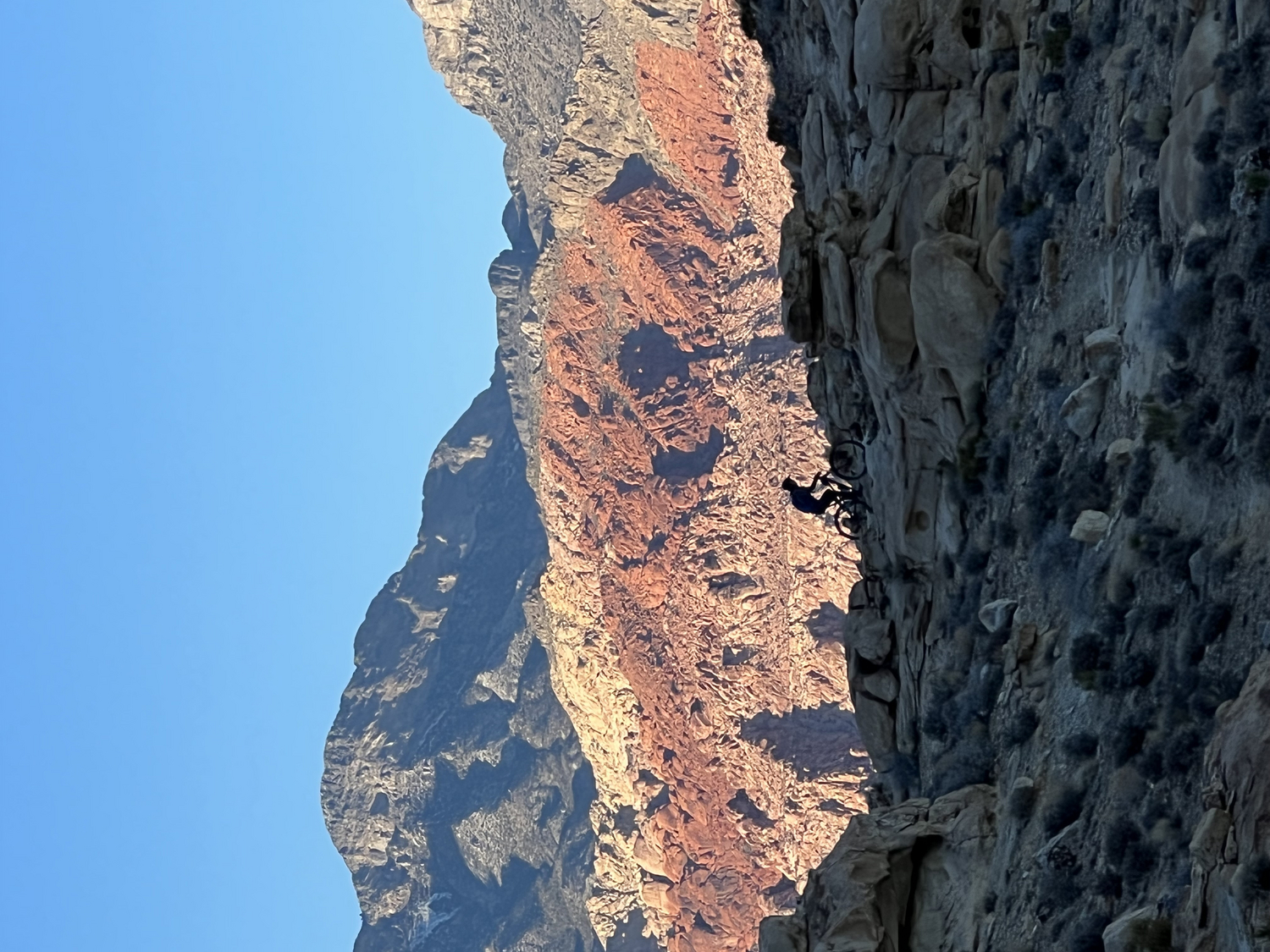
Once SNMBA identified sanctioning mountain bike trails as a long-term goal, we needed to establish a pathway to achieving that goal. Through a few key conversations, SNMBA learned that a major barrier to land managers' ability to sanction trails is their need for more resources for trail maintenance. Sanctioned trails need to be maintained. For that reason, SNMBA’s focus turned toward supporting land managers, specifically the BLM, with trail maintenance. We determined the best way to do this was to create a local team of expertly trained individuals qualified to lead trail building and maintenance efforts. SNMBA decided we wanted to host IMBA’s Trail Care School in Las Vegas because IMBA is considered the gold standard in trail building and maintenance. The curriculum for the two-day course is well established, and IMBA has an excellent reputation with land managers. Combined, these factors made it easy to justify the benefits of bringing IMBA’s Trail Care School to Las Vegas.
Meanwhile, the RTP grant application period opened, and the BLM expressed interest in partnering with SNMBA on a grant. The application process consisted of a pre-application where the RTP committee determined if the proposed project met the requirements of an RTP-funded project, a final application, and a presentation. This was the first grant our current SNMBA leadership team had applied for, so while we put 100% effort into our application, we also acknowledged that it might culminate in a good “learning” experience without being awarded a grant. Our effort paid off, and SNMBA was awarded an RTP grant for our project.
Through the process, we learned a lot. Some takeaways include:
1. Use the support provided to RTP grant applicants. Through each step of the process, we consulted with State Parks staff, including the Park and Recreation Program Manager. Their guidance helped our project fit the criteria necessary for RTP grant funding. Specifically, training such as IMBA’s Trail Care School must be attached to a specific trail maintenance project.
2. Read the instructions thoroughly and utilize the data provided to support your project. For example, we were provided the SCORP (Statewide Comprehensive Outdoor Recreation Plan) study results. We used data from this study to justify the need for mountain bike trails.
3. Clearly articulate the project's goals and objectives and point out how the project will benefit the community. Use bullet points.
4. Develop strong partnerships with stakeholders. Our partnership with the BLM was absolutely critical. The BLM helped us identify the targeted trails for maintenance, provided the necessary Resource Management Plan (RMP) and Record of Decision (ROD), provided images of maps of the area which helped strengthen our application, and provided a letter of support. The City of Las Vegas and the director of the Nevada South Interscholastic Cycling League also provided letters of support.
5. Be flexible. Our final grant application was much different than what we submitted in our pre-application. Specifically, the BLM changed its mind on which trails should be targeted for maintenance. This was significant because it resulted in us needing to reshape our objectives. Additionally, all new photos, maps, RMPs, and RODs were required to be submitted.
6. The presentation is where you sell your project! Be prepared with a PowerPoint and notes or a script to keep the presentation clear and concise.
While RTP grants are known to be notoriously tricky, they are worth the effort and can provide a significant source of funding to support mountain bike trails in your community. Most importantly, you don’t need to be an experienced grant writer to receive RTP funding!
